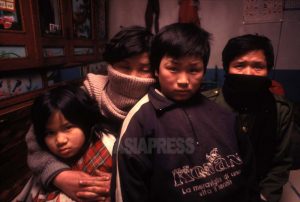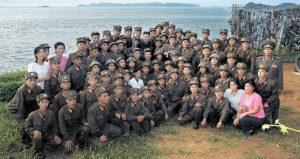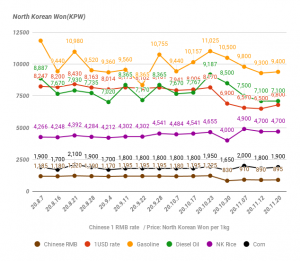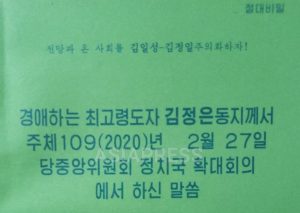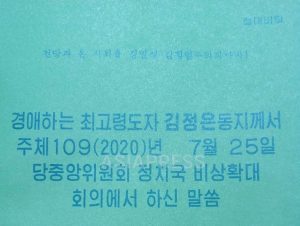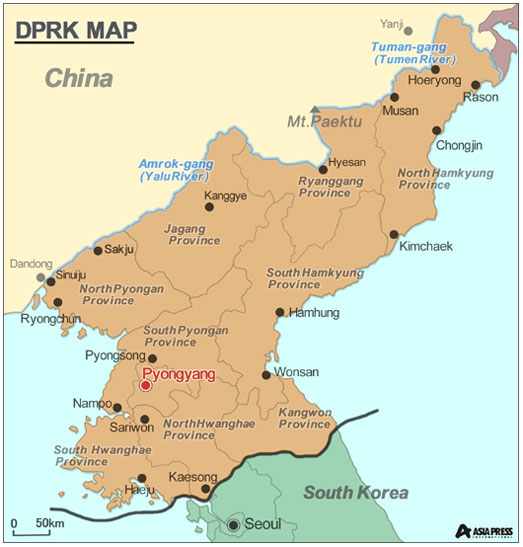
Map of North Korea. Produced by ASIAPRESS
■ The response of Chinese authorities to sanctions
It can be said that the response of the Chinese authorities has varied between faithful implementation of the sanctions and what can only be described as “turning a blind eye.” For example, the Chilbosan Hotel, a North Korea-China joint venture in Shenyang, Liaoning Province, was closed on January 9, 2019, just before the deadline set by the UN sanctions. Later, the hotel was opened under Chinese ownership. According to a survey by ASIAPRESS, information regarding the dismantling and of joint ventures was delivered to various companies across China. Sections of Chinese companies that were operating joint ventures in cooperation with North Korean mines in Musan and Hyesan were all said to have been dismantled.
The Chinese government does not seem to be renewing or issuing new work visas, although it is not yet known if this is due to an official, comprehensive policy. An investigation by ASIAPRESS, however, found that North Korean laborers are still being hired by Chinese companies through various loopholes.
One such loophole is referred to as “river crossing,” in which laborers from the North Korean border region receive a border pass that does not require a visa. It is a simple document that resembles a passport and restricts the movement of the holder to certain areas while allowing them to be employed. In addition, it is believed that North Korean workers are employed on entertainment, study abroad, and technical training visas.
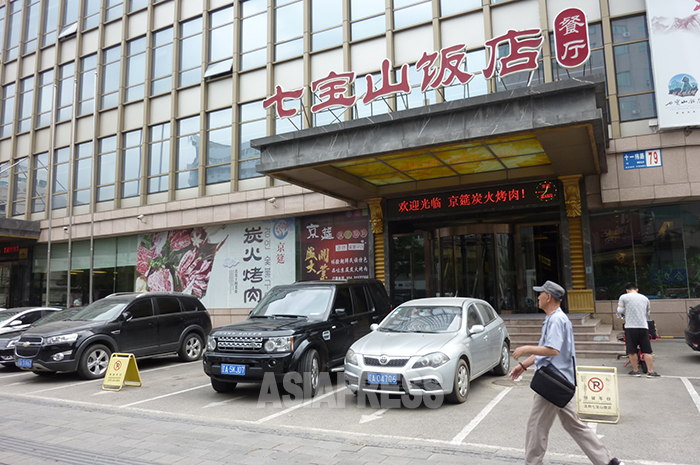
The largest China-North Korea joint venture hotel was the Chilbosan Hotel in Shenyang. It was shut down in January 2018. This photo was taken in October 2017, just 3 months before it was closed. ISHIMARU Jiro
In 2019, a group of female workers were seen in Tumen City, Jilin Province and Dandong, Liaoning Province, on their return back to North Korea. This occurred immediately after the deadline for dispatched workers to return to North Korea. After ASIAPRESS provided this information to KBS, a team of reporters (the same team that documented border smuggling in the region) visited Tumen City in late November of last year to film the hundreds of North Korean women seen boarding busses, empty-handed, for their return through Tumen’s Industrial Complex on the border. It is said that between 2,000 and 3,000 people work at this industrial complex, which was originally designed for North Korean workers to provide cheap labor for Chinese companies.
Chinese authorities have stopped issuing and renewing work visas, despite pressure from the Kim Jong-un regime, which hopes to make up for lost foreign currency revenue, and from Chinese companies, which look to capitalize on cheap labor. It is highly likely that the Chinese government will point to this act in the future as proof that the UN sanctions were faithfully implemented.
Next page :■ How are dispatched workers selected in North Korea?








